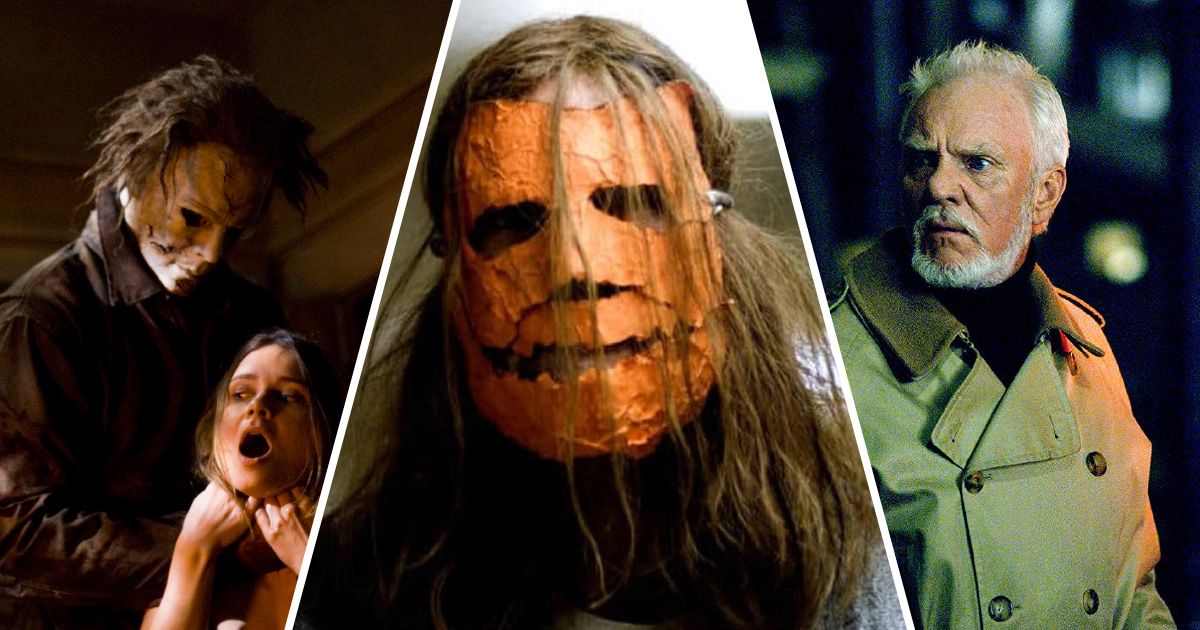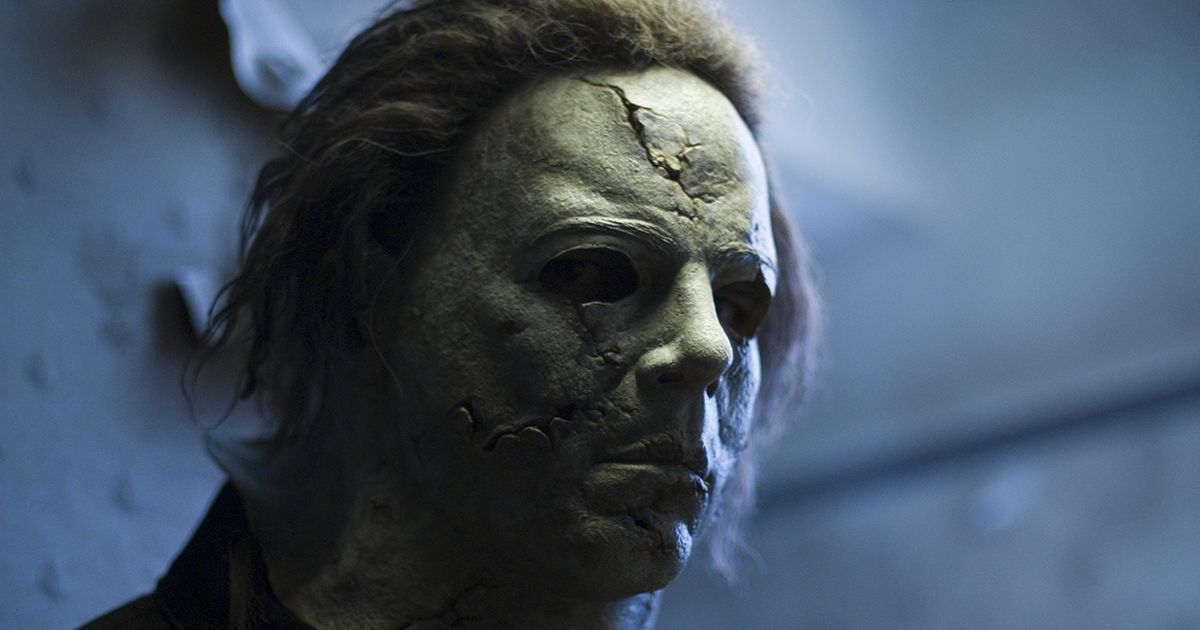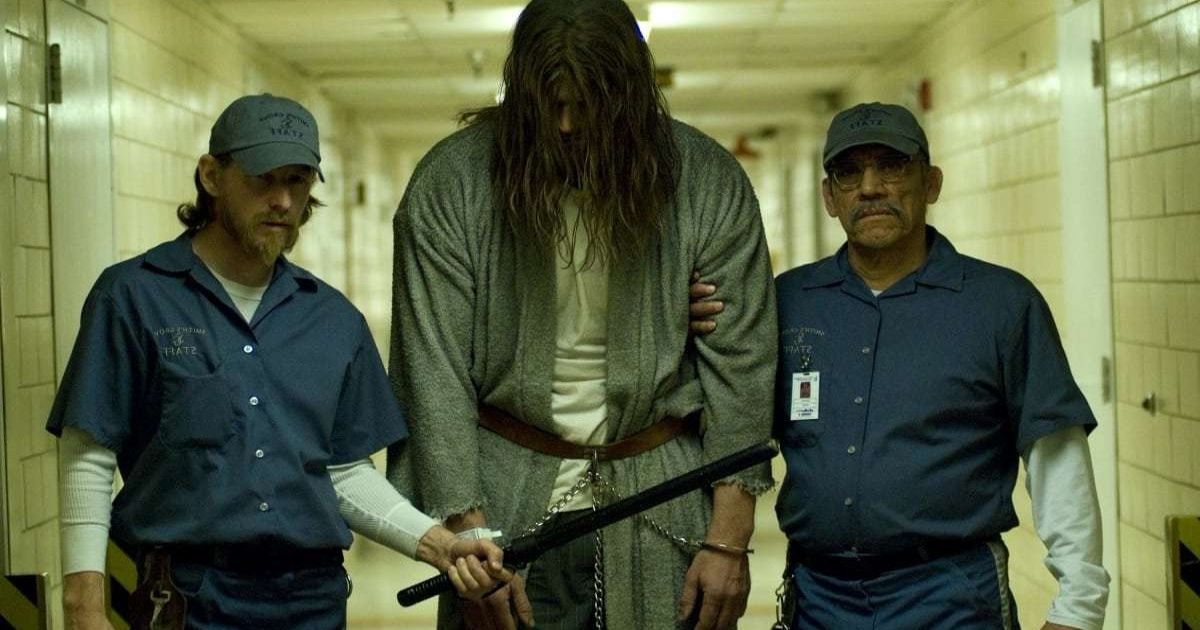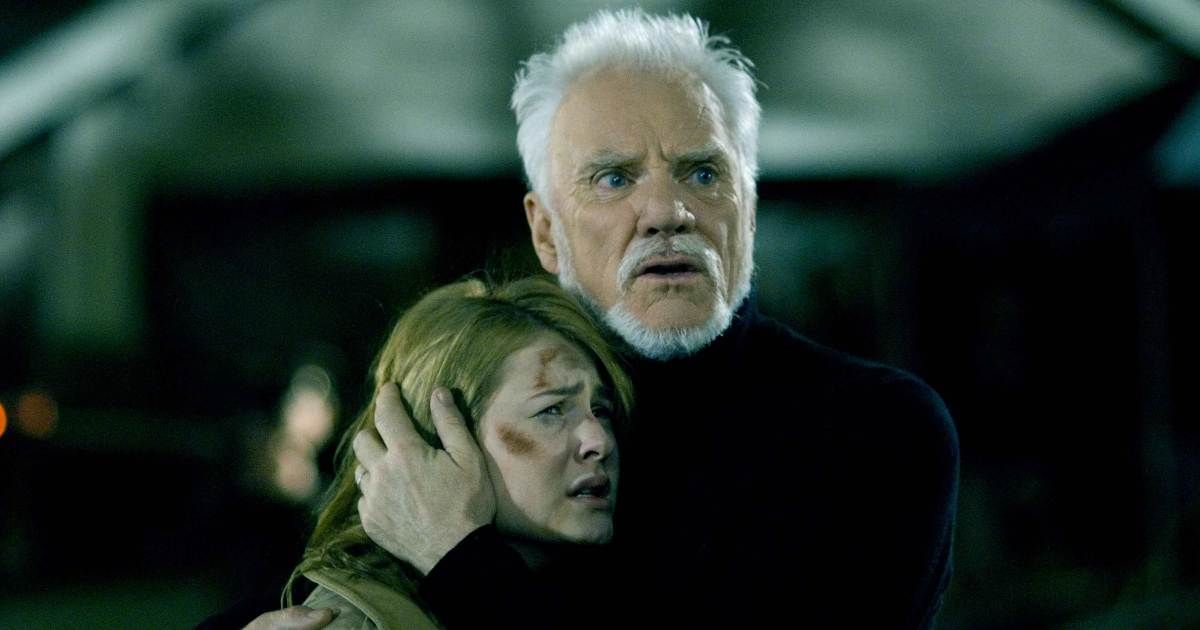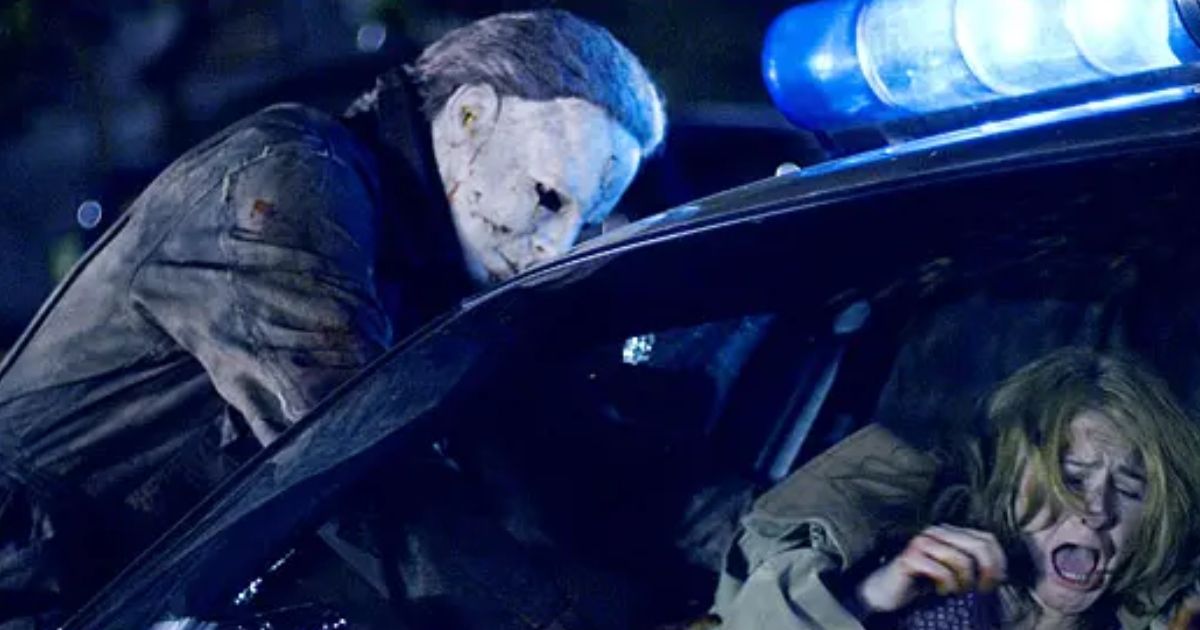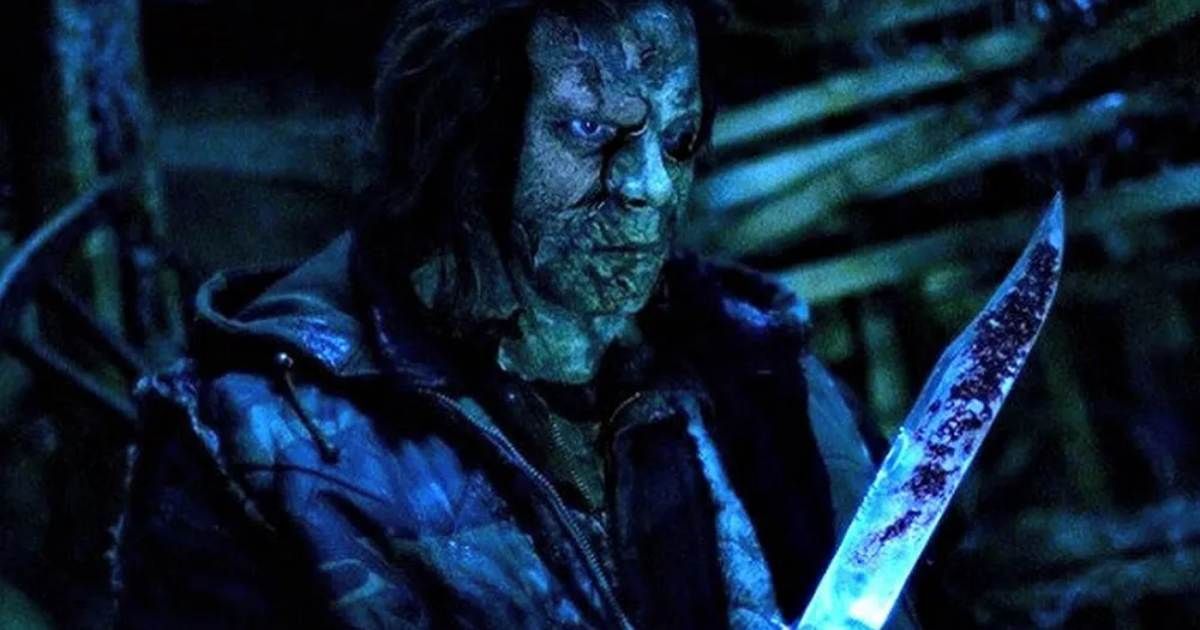With thirteen movies in total (so far), Halloween is one of the most well-known franchises, and not just within the horror genre. If you don't know who Michael Myers is, he's one of the most iconic slashers to date, appearing immortal since he refuses to die in the several movies he's appeared in. Last year's Halloween Ends was released, and the seemingly never-ending story between Laurie Strode and Michael Myers came to a conclusion.
However, in 2007, Rob Zombie got his hands on the franchise, helming a re-telling of an already well-known story. Zombie's Halloween got a lot of backlash for his controversial plot direction, keeping it mostly pure to the original but also adding more depth to Myers and his character buildup towards becoming The Shape. At least, that's the intention he had. Audiences weren't as keen, and horror fans mostly regarded it as pure trash, yet others gravitated towards it. This is why Zombie's take on the franchise is so controversial.
Update October 8, 2023: In honor of the Halloween season coming up, and with the 16th anniversary of Rob Zombie's Halloween hitting theaters, this article has been updated with even more material.
Exploring Michael's Childhood
From the very beginning of Zombie's movie, he takes a different direction and depicts Michael's damaged childhood. The audience is made aware that he doesn't have an ideal home life. His mother's boyfriend is verbally abusive towards him and also the rest of the family. Michael is exposed to a lot of aggression and abuse, not only at home but also at school, meaning that he never really caught a break. He has a pack of bullies that follow him around, tormenting him and saying terrible things about his mother, even if they're true. Also, it's interesting how Zombie aged up Michael to ten years old instead of six, which was his original age in the first Halloween movie.
Zombie actually did a good job of making Michael's childhood the way that it was because it gave some viewers the information they needed. In order to understand why Michael acted the way he did and what he turned out to be, the psychology of it all and his home life played a massive part in it. Never getting the help he needed, not growing up in a healthy environment, and constantly being abused gives us reason to put the pieces together for Michael's life.
Making Michael Jacked
There's a significant difference between Zombie's Michael and the original villain, and that's the sheer size difference between the two of them. Viewers might be shocked upon watching Zombie's films once they see how Michael looks and how big he is in comparison to the other films. Throughout Zombie's Halloween, Michael is described as a beast, his height and body weight giving him an advantage against his victims, as well as the people who try to take him down.
Viewers and fans of Michael Myers watch as he takes no mercy on the people he comes across, even the guard who watched him grow up in his cell. It's added shock value when Michael doesn't spare the guard (played by Danny Trejo) as he begs for his life and tries to remind Michael of all that he did for him. Then again, he still was a guard who kept Michael captive and locked him in chains whenever he walked around outside his cage. As much as Zombie's take on the franchise strayed from the original, we can count on Michael staying heartless and savage.
Canadian actor and former wrestler Tyler Mane gives life to the iconic slasher killer in the Zombie-verse, and we honestly can't think of a better choice for Zombie's intention in reformulating the character.
Loomis 2.0
After Donald Pleasence passed away, it was hard to imagine a new Loomis to take his place as the iconic character and caretaker of Michael Myers. Rob Zombie did a great job of casting Malcolm McDowell as Loomis because of the fresh take he applied to the character. In the original Halloween movies, Pleasence's Loomis always seemed frantic and slightly confused. He also was never really taken seriously; the sheriff and cops were always a bit slow to follow his direction and guidance, even though he worked with Michael for decades.
However, McDowell's Loomis is sure of himself, and it was helpful to see his relationship with young Michael. Loomis visited him every day at the institution, trying to help him remember what happened that fateful night and to help him heal. It was also vital to see how Michael reacted when Loomis told him he wasn't going to be his doctor anymore. Viewers are not getting any of that in the original. More context is always better, and this Loomis did a great job of portraying a doctor who gives up on his patient and then reaps the consequences of someone like Myers.
Also, seeing McDowell in horror-land is just bliss for fans of his career.
Language, Nudity, and Gore to the Max
In almost every single Halloween movie, there's some type of nudity from a female character. Whether it's a drawn-out sex scene between two minor characters or a woman just appearing naked while being killed, it happens every single time. Rob Zombie seems to take it above and beyond, deciding to show full nudity (multiple times), while the originals usually just stick with upper chest shots. It seems unnecessary and overwhelming; multiple victims of Michael's dying without their dignity. Not to mention, Zombie's Annie is played by Danielle Harris, who also played the role of Jamie Strode in parts 4 and 5. So it was kind of odd seeing that she died naked when, just a few years prior, she played a kid in the same franchise.
Also, the language in the movie is much more brash and inappropriate, and many slurs appear in the dialogue. Many ableist comments are made between Laurie and her friends, and the excuse of it being 2007 is old and tiring. Not only ableist comments but also homophobic slurs are used toward Michael from his stepfather, as well as his bullies, thus furthering Michael's aggression and hard childhood.
The film also maximizes the gore content. Michael is much more violent, and Zombie uses the monster's nihilistic nature to get rid of limits and rules, and Michael feels explosive whenever it's time to engage. Fans of the franchise probably didn't think this was troublesome, but considering the giant twist in aesthetics and plot style that Zombie contributed, the change feels more drastic than necessary.
And Then There Was That Sequel
As controversial as 2007's Halloween was, the film was a big enough hit to warrant another entry for Zombie. In 2009, Halloween II was released, and angry fans were boiling with rage as Zombie's touch was augmented in favor of his vision. Halloween II is all sorts of weird, with Michael sharing a psychological connection with Laurie and her displaying early symbols of the Myers' abilities to disconnect from reality.
The film's also grittier and ten times more violent than expected. Curiously, the film has fans, as divisive as it is. Zombie's dramatic direction just gives more depth to Laurie's actuality and the character of Michael being a result of early childhood trauma. What people remember the most about it is its final scene, depicting hallucination-like images and the potential figure of Michael being passed on to his sister.
In retrospect, Zombie's addition to the Halloween-verse is darker and poignant. It's as divisive as it should be, with some fans appreciating it much more than the franchise's retcon reboot made by David Gordon Green in 2018. Zombie's films are clearly the results of his artistic vision, and while that might anger some fans who wanted it to stick closer to the original format, his films cannot be called assembly line products. Nobody else could have made these films.
In any case, nobody can say it's not an interesting approach that should be seen at least once to understand how a filmmaker's style can heavily influence a mainstream product.

